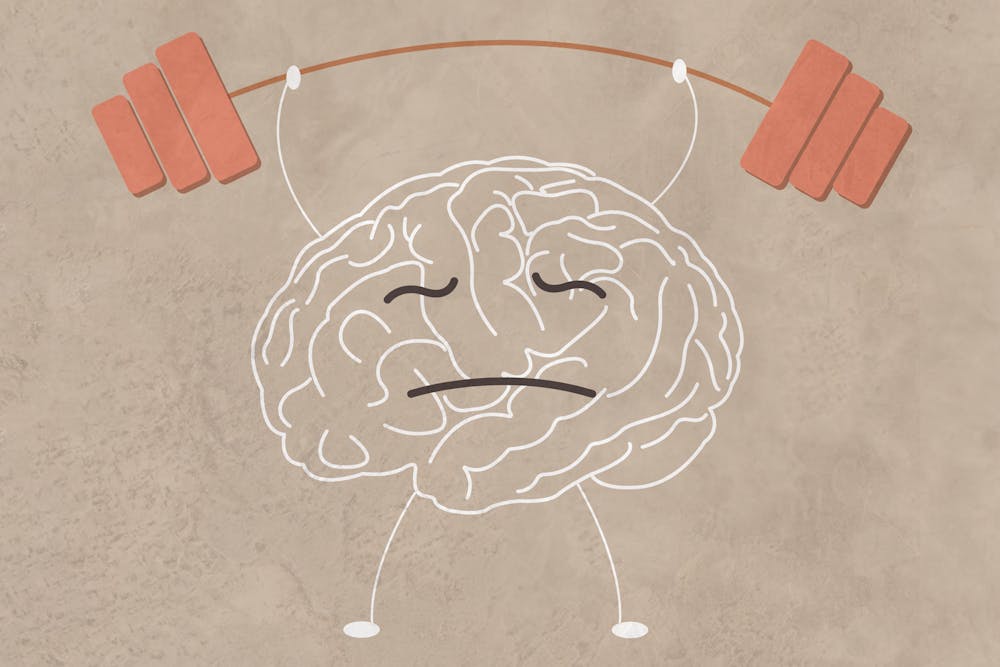USC offers various options to promote well-being and self-care; however, understanding the connections between mental and physical health may further aid students in adjusting and seeking out resources throughout this semester.
It's become easier for students to forget to prioritize their well-being, especially considering last year's Zoom-based schooling.
Last year, students across the country had to adapt to Zoom meetings for classes and clubs, less physical activity and the absence of many students on campus.
Online school, combined with several nation and state-wide lockdowns, deteriorated both mental and physical health in people enough as it was. A national survey conducted by Healthy Minds Network reported that 39% of college students had signs of generalized depression.
Now, an abrupt transition from isolation to full close interactions and full schedules has proved stressful in several ways. Students are expected to manage full time schedules, get involved on campus and balance their personal lives with little-to-no time to adjust to these new demands.
Within the last year, medical professionals have predicted a long-term “fourth wave” of the coronavirus pandemic caused by the negative mental health impacts the pandemic has had, particularly among younger populations. These impacts may outlast the physical effects of the virus, professionals say.
This could be because one’s mental and physical health are more intertwined than many think. It's commonly referred to as the “mind-body connection,” or the manner in which an individual works toward improving either aspect of their health tends to directly correlate to the other.
For example, exercise has been known to benefit both physical and mental health. This correlation has made it so exercise is often utilized to supplement medication or treat specific mental conditions.
Exercise isn't the only thing that can be used to treat both mental and physical health. Other methods include moving around outside, eating healthy, making more time for sleep and turning away from limiting detrimental habits.
A recent study found adults who exercised reported fewer days of poor mental health each month than those who did not exercise. In fact, there was a 43.2% difference in the number of poor mental health days between the two groups.
USC provides different opportunities for students to combat stress and relieve all aspects of their health.
If you usually lean toward the mental aspect of their mind-body connection, try branching out and exploring more physical-oriented activities in terms of health. All students have access to both the Strom Thurmond Wellness and Fitness Center and the Solomon Blatt Physical Education Center to utilize equipment and included fitness classes.
On the other end of the spectrum, mental health associated clubs such as Active Minds, Carolina Health Outreach and Humans of Carolina push to reduce the stigma around mental health and encouraging students to seek out support.
Additionally, all over campus there are opportunities combining elements of physical and mental health, such as goat yoga, hiking and various other outdoor activities.
If you want to learn more about what's available on campus, check out the university's website, which includes several contacts and options to select from in terms of health and self-care.

